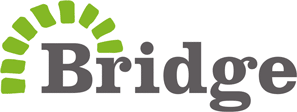Union challenged to have the courage to rely on evidence rather than ideology
17 August 2017
Education International, the global teaching trade union body, has been challenged to provide solutions to the global education crisis, rather than trying to thwart attempts to reform the sector.
In an open letter to the union’s General Secretary, Fred van Leeuwen, Bridge Academies’ co-founder calls on Education International to have the ‘courage to rely on evidence rather than ideology’; invest in education R&D and prioritise the 600 million children currently victims of failing education systems.
The letter comes as the new UN annual report on progress towards the sustainable development goals reveals that that ‘the rate of progress in many areas is far slower than needed to meet the targets by 2030 and ‘stresses the need for new partnerships’ and underscores the need for timely and accessible data’.
Extracts from the Open Letter to Education International from Bridge Academies:
“We would hope that any group focused on education would embrace attempts to deliver millions of children from poverty rather than trying to thwart them.
“There are nearly 600 million children who are not receiving a quality education. There are children fleeing conflict, there are children in classrooms with teachers who can themselves not read, and there are children who live in communities where there simply are not enough classrooms, or no schools. This is the reality on the ground.”
“The only way to bring our shared goal into reality is to commit to education reform.”
“…many of us will have to have the courage to rely on evidence rather than ideology and work with partners that represent different interest groups.”
“We would welcome constructive participation from your organisation in consortiums to fund investment in R&D to create more effective teacher training, more effective management systems, and more effective teacher and learner resources.”
[ENDS]
For further information please contact:
media@oldbridge.mc-staging2.net or +44 (0) 20 3813 8236
Notes to Editors:
Education International is a global trade union body based in Brussels that campaigns actively against education reform in developing countries.
Renowned Stanford economist, Eric Hanushek wrote an article in the Wall Street Journal exploring why western teaching unions would campaign against reform in developing countries.
The 2017 UN sustainable development annual Progress report can be found here.
Full Open Letter from Bridge Co-Founder Dr. Shannon May, to General Secretary of Education International Fred van Leeuwen:
Dear General Secretary of Education International, Mr van Leeuwen,
I am writing to respond to your recently published article about Bridge, which leaves me deeply saddened. Not only because is it littered with untruths but because we would hope that any group focused on education would embrace attempts to deliver millions of children from poverty rather than trying to thwart them.
Bridge is headquartered in Kenya, it is not ‘foreign based’. I do not know whether you personally have ever been to the communities we serve or schools within them, but I encourage you to do so and see the work that is being done on the ground. As you surely know, we have no schools closed in Uganda or Kenya and in both countries, we’re working closely with the respective governments.
We welcome constructive engagement with everyone working to solve what Chair of the Education Commission, Gordon Brown has noted is ‘the greatest civil rights injustice of our time’: the achievement gap between children in the developed vs. developing world.
We believe every child has the right to a good education. We agree that education is one of the most effective ways to end the cycle of poverty, enabling growth and prosperity. It reduces conflict, enhances stability and strengthens nations. We agree with you that there should be truly great, truly free public schools, but we are also pragmatic. There are nearly 600 million children who are not receiving a quality education. There are children fleeing conflict, there are children in classrooms with teachers who can themselves not read, and there are children who live in communities where there simply are not enough classrooms, or no schools. This is the reality on the ground.
The only way to bring our shared goal into reality is to commit to education reform; to put into place programs that assess teachers preparation, and close the gaps in their previous professional development; that evaluate existing materials for effectiveness and invest in creation of new teacher and learner support materials; and that ensure that public schools and school systems continue to be focused on their fundamental goal: ensuring that all children, regardless of socio-economic background, develop their full potential.
Bridge seeks to help address the huge education imbalance between what is available and what is needed right now. You may wish – we may all wish – that this need did not exist, but that does not change the fact that 600 million children lack access to adequate, let alone excellent, schools and that is something that we should all work to change.
We welcome conversations that seek to provide solutions to the current failing systems that foreclose on children’s futures before they’ve even begun. We know that to build a prosperous and inclusive world, many of us will have to have the courage to rely on evidence rather than ideology and work with partners that represent different interest groups, from various countries.
We all agree that education needs to actually deliver on learning and development for every child, which will require new and better designs for programs and systems. We encourage others to invest in R&D to solve the global education crisis, and are heartened by initiatives such as the Millions Learning program at the Center for Universal Education which recommended that governments establish R&D hubs for education. We would welcome constructive participation from your organisation in consortiums to fund investment in R&D to create more effective teacher training, more effective management systems, and more effective teacher and learner resources.
In the design of our model, we are very conscious that developing countries have limited national budgets. While New York State spends more than $20,000 per child per year in primary school, Liberia estimates that it spends $50. Lower Middle-Income countries – such as Nigeria and Kenya – spend an average of just under $350. By demonstrating that high-performing schools are possible even on a developing country’s limited budget, Bridge has empowered governments and others to make informed decisions on how to improve learning. Far from acting separately from government or taking government “off the hook,” Bridge partners with governments, helping them address educational shortfalls and improve learning outcomes in public schools.
In Liberia, contrary to your statements, Bridge is not running ‘a significant number’ of public schools. We are currently supporting the transformation of 25 struggling public schools into powerful public schools. In year two of the pilot, even with the continuing participation of eight different organizations, Partnerships for Liberia (PSL) will represent a total of just 7% of Liberia’s public primary schools. Yet, in these schools in just four months we have already witnessed significant transformation. When compared to other public school students, four times as many Bridge PSL students now meet fluency benchmarks. As the program continues to demonstrate success supporting effective teachers, and preparing children to succeed in life and develop their country, we trust those in the education sector will support its expansion.
Importantly, I want to reassure you that Bridge is here to champion teachers and empower them. We help average teachers become great teachers. Our approach has seen teacher absenteeism fall from 47% to 1% in Kenya, tackling an endemic problem. We support teachers with empowering classroom management techniques, extensive resources for each lesson, and weekly feedback on classroom management and lesson delivery. Our schools are rich with feedback from principals and coaches, and provide the resources teachers need to succeed. Our lesson plans ensure that each teacher has a tested, factually correct and stimulating lesson to teach. Each lesson includes various means of engagement, from whole class, to small group, to peer-to-peer, to individual instruction and independent work. Our development ensures that all teachers are equipped to effectively deliver this curriculum. Many teachers we work with have never had any training in small group instruction methods or in giving direct feedback on individual work, or on how to manage a classroom without corporal punishment. Many teachers have never been taught techniques such as cold calling, or in actively encouraging children to inquire. Ensuring that teachers are not left without support, training or guidance is surely something we could come together to tackle?
Despite claims to the contrary, there are results of various interventions across the developing world that are demonstrating significant gains for children by changing the status quo in the classroom or school system. Some programs address the gap in teachers’ knowledge of core subjects, such as the USAID/DfID/World Bank Tusome literacy program implemented by the Research Triangle Institute in Kenya. By creating lesson plans for English, and training teachers to use these guides, children in the pilot of 311 schools saw their reading fluency increase by over 9 words per minute (or 0.32 SD) in 1-2 years. Now that program is used in all 23,000 Kenyan public schools. In India, a partnership among Pratham, the government, and a team of researchers at J-PAL has yielded innovative and effective programs to teach children at the right level, closing significant achievement gaps.
All of these programs change teacher training and preparation, lesson preparation and use, teacher and learner resource materials, school management and learner programs in various ways, and result in increased learning compared to the status quo. It is only by changing the status quo that we will right the great social injustice of 600 million children being out of school or not learning in school. Following global R&D and conducting our own, Bridge incorporates leading practices that produce results for children in a holistic school program. There is extensive evidence that Bridge enables children to develop their full potential, and do so even in extraordinarily adverse circumstances. In many of Kenya’s poorest counties, including Islolo, Makueni, Busia, Baringo, and others, Bridge girls outperform all traditional public-school boys and girls. Across all of Kenya the pass rate for children – wealthy and impoverished – on the national primary examination (KCPE) is just under 50%. Yet, for children from families struggling to make it who have been with Bridge only 2 years, it is 63%; for those children who’d studied at Bridge for 4 years, it is 74%.
We appreciate your call to use evidence in decision-making, and look forward to partnering with you to share the evidence here, and the other great work led by others around the globe that is making a difference for teachers, and for children.
Let’s together prioritise helping the 600 million who are waiting for us to come together and work together as their champions. It would be so powerful if you would work with us in this fight to reach those children, enabling them to fulfil their potential and build a more prosperous and peaceful future for us all.
Yours Sincerely,
Dr. Shannon May
Co-founder
Bridge International Academies
About Bridge
Bridge believes every child has the right to high quality education and works in partnership with governments, communities, parents and teachers to deliver education to over 100,000 children in underserved communities across Africa and Asia.
Bridge leverages in-depth teacher training and support, advanced lesson plans and wireless technology to provide pupils with a meaningful and life-changing education.
Globally, there is an education crisis. Around 263 million children and young people are not in school and the number of primary school aged children not in school is increasing. Bridge is committed to helping tackle this through a data driven, evidence based approach that delivers strong schools and a great education for all.





